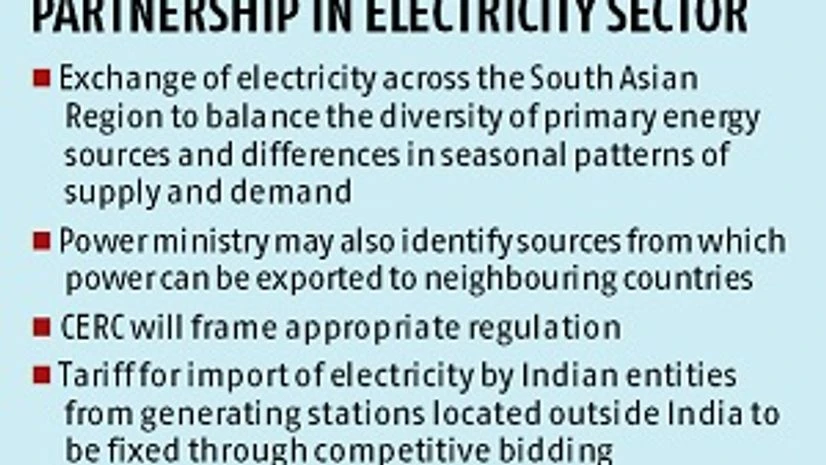The power ministry late on Monday issued guidelines to facilitate cross-border trade of electricity. The Central Electricity Regulatory Commission will frame appropriate regulations binding on all participating entities.
According to the guidelines, a participating entity will be eligible for cross-border trading on Indian power exchanges, including Indian Energy Exchange and Power Exchange India, in term-ahead contracts, intra-day contracts and contingency contracts.
The interconnection between India and its neighbouring countries will be planned jointly by transmission planning agencies with the approval of the respective governments. Further, tariffs for import of electricity by Indian entities, including traders, distribution licensees from generating stations directly, and traders located outside India, will be determined through competitive bidding.
At present, cross-border trade of electricity takes place with Bangladesh, Bhutan and Nepal. The SAARC Framework Agreement for Energy Cooperation (Electricity) was signed on November 27, 2014.
The United States Agency for International Development (USAID) in a recent study estimated the annual cross-border electricity trade potential in the region to be 11-31 billion units in 2015-2020, which could rise to 330 billion units by 2034.

More From This Section
Rajesh Mediratta, director (business development), Indian Energy Exchange, said power exchanges had been allowed to facilitate all electricity transactions except in the day-ahead market.
''We expect such restrictions will be removed shortly to create a market of free-flowing electricity with hydro-rich neighbours, including Nepal and Bhutan, and power-deficit Bangladesh and Myanmar,'' he added.
Rupa Devi Singh, former managing director and chief executive officer of Power Exchange India, said the guidelines were a watershed development towards the creation of a regional market in electricity.
''The ease of contracting and trade, coupled with payment security that power exchanges guarantee, will enable participants to come on board. This development signifies the coming of age for power exchanges as market infrastructure institutions,'' she added.

)
